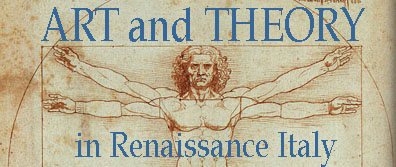Giotto and Nature
GIOVANNI BOCCACCIO (1313-1375)
excerpt from his Decameron, c. 1349-1351
(6th Day, 5th Tale)
GIOTTO
The other was Giotto, whose genius was of such excellence that with his art and brush or crayon he painted anything in Nature, the mother and mover of all things under the perpetual turning of the heavens, and painted them so like that they seemed not so much likenesses as the things in themselves; whereby it often happened that men's visual sense was deceived, and they thought that to be real which was only painted.
Now he who brought back to light that art which for many centuries had lain buried under errors (and thus was more fitted to please the eyes of the ignorant than the minds of the wise), may rightly be called one of the shining lights of Florentine glory.
CENNINO CENNINI (c. 1370-c.1440)
excerpts from his Book of the Art, 1437
GIOTTO
Mind you, the most perfect steersman that you can have, and the best helm, lie in the triumphal gateway of copying from nature. And this outdoes all other models.
Giotto turned the art of painting from Greek into Latin, and rendered it modern. He mastered our art more completely than anyone before or since.
LORENZO GHIBERTI (c. 1378-1455)
excerpt from his "Third Commentary" (1447-1455)
GIOTTO
The art of painting began to flourish again in a village called Vespignano, not far from the city of Florence.
There a boy of wonderful talent was born, who one day was copying a sheep from the life.
Cimabue the painter, passing by on the road to Bologna, saw him sitting on the ground and drawing the sheep on a slab of stone. He was filled with admiration for the child who at an age so tender was working so well.
And reflecting that he must have owed such skill to natural talent, he asked him his name.
The boy replied: "My name is Giotto. My father's name is Bondone, and he lives near here, in yonder house."
Cimabue, remarking the boy's agreeable personality, went with him to his father, whom he asked permission to take Giotto with him. The father was very poor and granted the painter's request.
Thus Giotto became a pupil of Cimabue, who then was painting in the Greek style and in that style had earned very great fame in Tuscany.
Giotto became great in the art of painting. He introduced the new art. He abandoned the rudeness of the Greeks.
LEONARDO DA VINCI (1452-1519)
excerpt from his writings
GIOTTO
How from age to age the art of painting continually declines and deteriorates when painters have no other standard than work already done.
The painter will produce pictures of little merit if he takes the works of others as his standard; but if he will apply himself to learn from the objects of nature he will produce good results.
This we see was the case with the painters who came after the time of the Romans, for they continually imitated each other, and from age to age their art steadily declined.
After these came Giotto the Florentine.
And he -- reared in mountain solitudes, inhabited only by goats and suchlike beasts -- turning straight from nature to his art, began to draw on the rocks the movements of the goats which he was tending, and so began to draw the figures of all the animals which were to be found in the country, in such a way that after much study he not only surpassed the masters of his own time but all those of many preceding centuries.
After him art again declined, because all were imitating paintings already done; and so for centuries it continued to decline until such time as Tommaso the Florentine, nicknamed Masaccio, showed by the perfection of his world how those who took as their standard anything other than nature, the supreme guide of all the masters, were wearying themselves in vain.
Similarly I would say about these mathematical subjects, that those who study only the authorities and not the works of nature are in art the grandsons and not the sons of nature, which is the supreme guide of the good authorities.
Mark the supreme folly of those who censure such as learn from nature, leaving uncensored the authorities who were themselves the disciples of this same nature!



